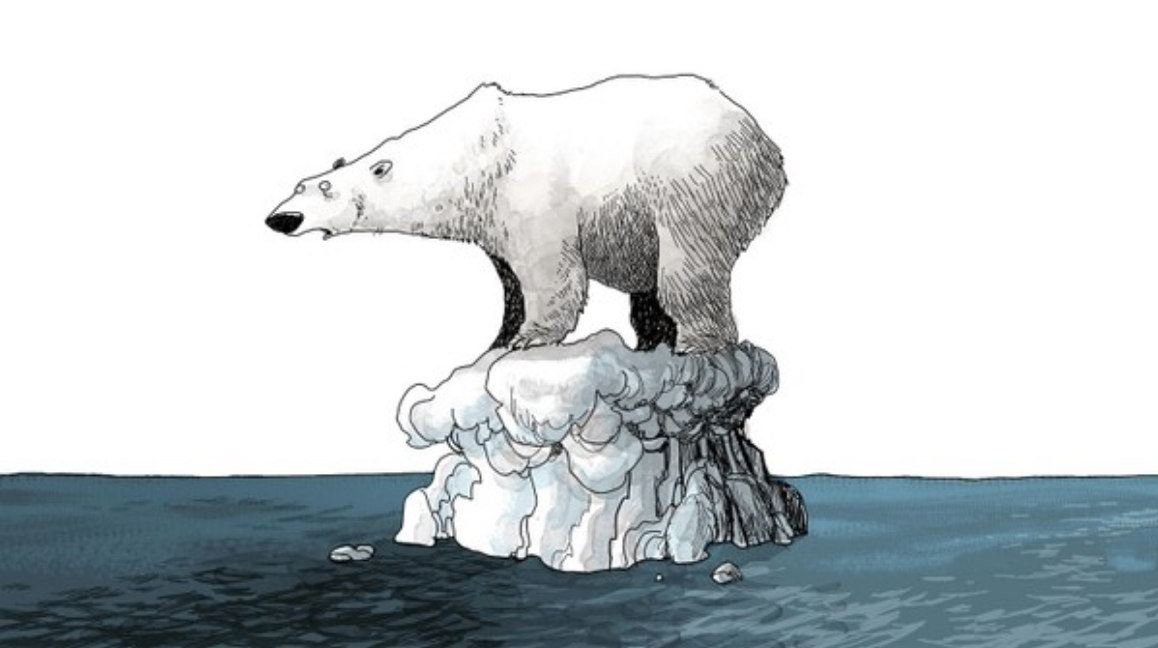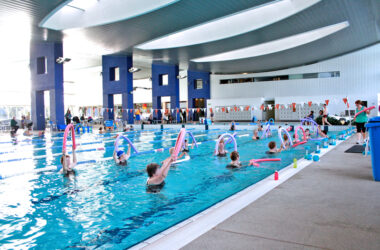For many students, climate change is a daily consideration when making choices like bringing reusable bags to the store or using refillable coffee cups. Environmental awareness is as prevalent as its effects are terrifying, exemplified by the 150,000 people who walked at the Montreal March for Climate Justice on March 15. In the university context, it can be easy to forget that nearly one third of Canadians are unconvinced that climate change is caused by human activity.
The 97 per cent consensus is a widely-cited statistic which states that 97.1 per cent of scientists agree that climate change is anthropogenic, or manmade. This statistic comes from a 2013 study which quantified the academic consensus by examining the abstracts of 11,944 climate science papers and classifying each one based on its position on global warming. The study also stated that the more expertise the author had on the subject, the more likely they were to believe in anthropogenic climate change.
Cook’s study has been criticized for only examining the abstracts that take a concrete position on climate change. Nonetheless, other studies have concluded that a consensus exists among somewhere between 90 and 100 per cent of climate scientists.
In an interview with The McGill Tribune, Theo Van de Ven, a professor in McGill’s Department of Chemistry, expressed scepticism that the 97 per cent consensus is absolute, citing a petition signed by 31,000 scientists who have called on the government of the United States to reject the United Nations-sponsored Kyoto Protocol. He also alleged that most people only believe in climate change because it comes from scientists who have expert authority.
“This 97 per cent is based, in my opinion, on very sloppy statistics,” Van de Ven said. “I got this email about this [climate march], and it’s good that people are concerned about the climate, but I think that much of our youth is indoctrinated at schools. Why do most high school teachers believe in climate change? Because of the authority. That’s the 97 per cent. If you don’t believe in the 97 per cent, that falls apart. But they indoctrinate kids at primary school and secondary school with it.”
While Van de Ven believes that pollution is a problem, he remains unconvinced that human activity is causing climate change. He argues that there are many other unstudied factors that could also be attributed to global warming, and, as a result, he finds it preemptive to propose certain solutions such as a tax on carbon.
“There are many fluctuations in the climate, and they correlate very strongly with solar cycles,” Van de Ven said. “It’s very well established. There’s a plausible explanation, but people don’t seem to be seriously willing to investigate it [….] I’m just saying there’s basically no knowledge. This consensus is, in my opinion, just pushed for political reasons.”
Van de Ven remains in the minority of scientists who are suspicious of anthropogenic climate change. In Oct. 2018, the Intergovernmental Panel on Climate Change released a widely-read report which states that, if global warming is not limited to 1.5 degrees celsius, the consequences for our planet could be catastrophic. The continued refusal to acknowledge the ramifications, despite a widespread consensus among climate scientists has the potential to affect generations to come. The discrepancy between the high percentage of scientists who believe in anthropogenic climate change versus the third of Canadians who do not is alarming, but students can continue to make themselves aware of the consequences of global warming and educate their peers.










The 97.1% consensus is highly suspect, besides, science is not done by consensus.
If you are serious about the future of the earth and humanity you would be wise to review a selection of the 14 articles found here; https://friendsofscience.org/index.php?id=2315
Just to let you know, there is an Atmospheric and Oceanic Sciences department at McGill. Next time you have questions on climate change, come and ask us ! 😉
Unless a chemist studies aerosols or some other applicable atmospheric/oceanic process why are you asking a chemist about climate science? If you want a reasonable and well thought out answer you seek a specialist in the field just like if you are sick you are going to ask a medical doctor for advice. In the article Van de Ven mentions sloppy statistics, then they should well know that correlation does not mean causation as they imply with attributing climate change to solely changes in solar intensity (and fyi there has been much attention on this issue already, I suggest Van de Ven does some more research before making unfounded claims). Van de Ven goes on to mention the politics behind climate science, we should in turn ask about their own politics and what drives their motivations…
There a couple of particularly egregious aspects of the comments presented in the article. The first refers to the petition signed by “31,000 scientists” indicating skepticism about anthropogenic climate change. The first is that the petition has not been vetted to ensure that the names as well as the education areas and/or levels of the signees are in fact legitimate. Also, having and education in ANY “scientific” discipline at ANY level of completion, does not qualify someone as an expert in ALL areas of science. For instance, as someone with a PhD in atmospheric science, I am not and do not feel qualified to comment on areas of medical research, astro or theoretical physics, or mechanical or electrical engineering for instance. This is why science articles are reviewed by experts in their fields and they aren’t sent out to random individuals pursuing science educations in any undergraduate or graduate program around the world.
The second particularly egregious comment is that “other mechanisms for explaining climate variation have not been investigated”. This is patently false. Whenever a climate model is constructed, it is vetted by first reconstructing the previous climate and testing to see which factors best explain changes in the observations that we are witnessing. In order to correctly assess previous climate, all of the climate drivers including changes in solar radiation, cloud cover, land surfaces, atmospheric chemistry (changes in concentrations of other constituents such as ozone for instance), changes in the orbital cycles of the planet, natural variability in atmospheric and oceanic circulations etc. have to considered. The reason that there is not a lot of fanfare around the role that other factors play in the observed changes in the climate is not because the have not been investigated, but because those investigations SHOW that they are significantly LESS important than anthropogenic emissions of greenhouse gasses.
Lastly, the idea that there is a “political agenda” that is perhaps influenced by funding considerations is dubious as the amount of money invested by big petroleum and multinational corporations such as those run by the Koch brothers far exceeds the resources available to most atmospheric or climate scientists working on these issues. People should understand that there is no general desire in the atmospheric science community for anthropogenic emissions to the primary cause of climate change. It would be more convenient if wasn’t true, just as it would be great if we could all smoke as much as we want and eat bacon at every meal without it negatively impacting our health. However, that simply isn’t what the ever growing body of evidence that we have at our disposable suggests.
Neither plastic bags nor single-use coffee cups contribute to climate change. You’re confusing climate change with just general pollution in the first sentence of your article. I guess editors need to review for finals too lol
Where is the response from McGill School of Atmospheric Sciences?